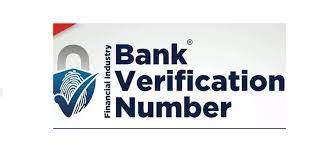The total registered Bank Verification Numbers (BVNs) has climbed to 56.57 million as at January 8, 2023, the Nigeria Inter-Bank Settlement System (NIBSS), reports.
According to NIBSS, Nigerian banks recorded a total of 4.8 million new Bank Verification Numbers (BVNs) in 2022.
“This is a significant increase compared to 51.7 million registered BVNs registered as of December 2021.’’
NIBSS observed that the 2022 figure indicated a slowdown in the BVN database growth compared with 2021 when it increased by six million from 45.7 million in December 2020 to 51.7 million.
NIBSS said active bank accounts in the country stood at133.5million
With the increasing incidence of compromise on conventional security systems (password and PIN), there is a high demand for greater security for access to sensitive or personal information in the banking system.
In recent times, biometric technologies have been used to analyse human characteristics as an enhanced form of authentication for real-time security processes.
While data of active bank accounts for 2022 are yet to be released, the NIBSS said the figure is expected to be higher than 133.5 million of the preceding year, which shows that there is still a wide gap between the registered BVNs and the number of bank accounts.
The BVN is a unique identification number that can be verified across all financial institutions in Nigeria.
A customer’s BVN is mapped to the individual’s biological traits namely: Finger Print, Signature, Facial photograph captured at the point of enrollment.
The BVN data base is the most reliable and comprehensive data source in the Nigeria Financial Industry.
NIBSS said the BVN offers the verification and validation of the customers’ identity seamlessly across multiple and interoperable electronic platforms.
“The BVN database is searched to display relevant information about an individual, this is called the bio-data (it includes names, phone numbers, addresses, dates of birth).
The purpose of the project is to use biometric information as a means of first identifying and verifying all individuals that have account(s) in any Nigerian bank.
It is a means of authenticating customer’s identity at point of transactions, to provide a uniform industrially accepted unique identity for Bank Customers, to authenticate transactions without the use of cards using only bio-metric features and PIN and identification of blacklisted customers,’’ NIBSS said.




